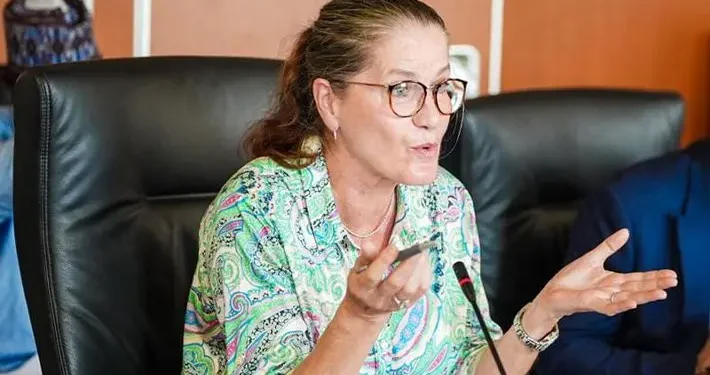Germany–Nigeria trade relations have entered a renewed phase of growth and cooperation, with total trade volume rising by 30% to reach €3 billion—cementing Nigeria’s position as Germany’s second-largest trading partner in Sub-Saharan Africa. According to Ambassador Annett Gunther, this growth reflects Nigeria’s gradual economic recovery and renewed investor confidence. Over 90 German companies now operate in Nigeria, creating roughly 17,000 indirect jobs across key industries such as manufacturing, pharmaceuticals, and energy. Notably, the Presidential Power Initiative, a flagship collaboration in the energy sector, has advanced into its second phase, underscoring Germany’s long-term commitment to Nigeria’s power infrastructure.

Beyond trade, the relationship is expanding through education, migration, and security cooperation. More than 7,600 visas were issued to Nigerians for study, business, and tourism, with further increases planned. Ambassador Gunther emphasised that legal migration and people-to-people exchange remain essential enablers of bilateral development. The German-Nigerian Binational Commission—established in 2011—continues to serve as the main platform for cooperation in business, education, and energy. Germany’s recent push to build a green hydrogen partnership with Nigeria further highlights the strategic nature of this relationship, with joint plans to develop a full hydrogen value chain from production to utilisation.
The growing trade relationship between Germany and Nigeria presents major opportunities for Africa’s broader economic integration and development. As Nigeria strengthens its role as Germany’s second-largest trading partner in Sub-Saharan Africa, the partnership could spur regional trade by positioning Nigeria as a key entry point for European investments into West Africa. Increased collaboration in sectors such as energy and manufacturing also holds the potential to transform Africa’s industrial landscape through technology transfer, job creation, and value-chain development—key steps toward regional self-sufficiency and competitiveness.
Furthermore, Germany’s expanding engagement in renewable energy, particularly through the green hydrogen partnership, supports Africa’s transition toward a sustainable energy future. The growing cooperation on education, migration, and skills development will also help create a more mobile, globally competitive African workforce. Together with the Binational Commission framework, which serves as a model for structured bilateral cooperation, this partnership can strengthen EU–Africa connectivity and set the stage for deeper, more sustainable trade and innovation linkages across the continent.
